Roundup Top Ten for May 29, 2020
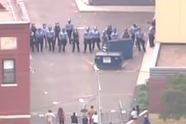
Why Does the Minneapolis Police Department Look Like a Military Unit?by Philip V. McHarrisThe violent response to protests by the Minneapolis Police Department show how police departments that have been granted subsidized access to military equipment have adopted a posture of battle against civilians. |

Immigrant Workers Have Borne the Brunt of COVID-19 Outbreaks at Meatpacking Plantsby Anya JabourThe COVID-19 epidemic should remind us of the hazards faced by immigrant meatpacking workers a century ago, and the labor and industry reforms needed to secure their safety. |
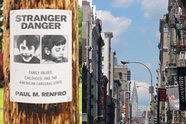
How the Disappearance of Etan Patz Changed the Face of New York City Foreverby Paul RenfroConcerns about the “safety” and “security” of specific children—particularly those who resemble Etan Patz—played a considerable role in New York’s extraordinary late twentieth-century transformation. |
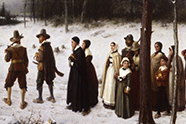
COVID-19 Didn’t Break the Food System. Hunger Was Already Here.by Carla CevascoThe COVID-19 pandemic is revealing the hunger underneath the rhetoric of American plenty. |
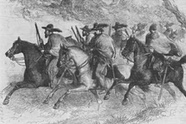
Understanding the Origins of American Gun Culture Can Help Reframe Today’s Gun Debateby Jim RasenbergerThe past is a morally untidy place. As a result, it is also a place, perhaps the last one left, where we can meet and lower our weapons for a while. |
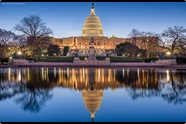
There’s No Historical Justification for One of the Most Dangerous Ideas in American Lawby Julian Davis Mortenson and Nicholas BagleyThe delegation of regulatory power to federal agencies is the indispensable foundation of modern American governance. And it is under siege. |

’A Black Man in a White Space’: America has a Long and Troubled History of Segregated Public Parksby Victoria W. WolcottPublic spaces are infused with the power of history: the legacy of segregation, police brutality, and white supremacy. If there was ever a time that called for compassion in our shared spaces, it is now. |
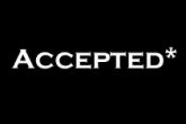
From Associate to Full Professorby Keisha N. BlainAlthough securing tenure and tenure-track jobs has received great attention lately, it is important that historians from underrepresented groups successfully pursue promotion to full professorship in their institutions to diversify leadership in the profession. |
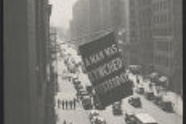
The Link Between the Video of Ahmaud Arbery’s Death and Lynching Photosby Grace Elizabeth HaleLynching images can only be created in a context where both killing and observing are allowed by law and society. |
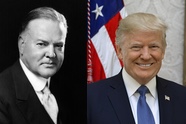
The Great Depression, Coronavirus Style: Crashes, Then and Nowby Nomi PrinsMonetary policy responses to the current crisis can't fix either the structural problems that make the economy vulnerable to severe disruption or the virus and public health crisis that underlie that disruption. Governments must choose to take coordinated action on multiple fronts. |